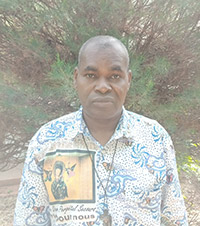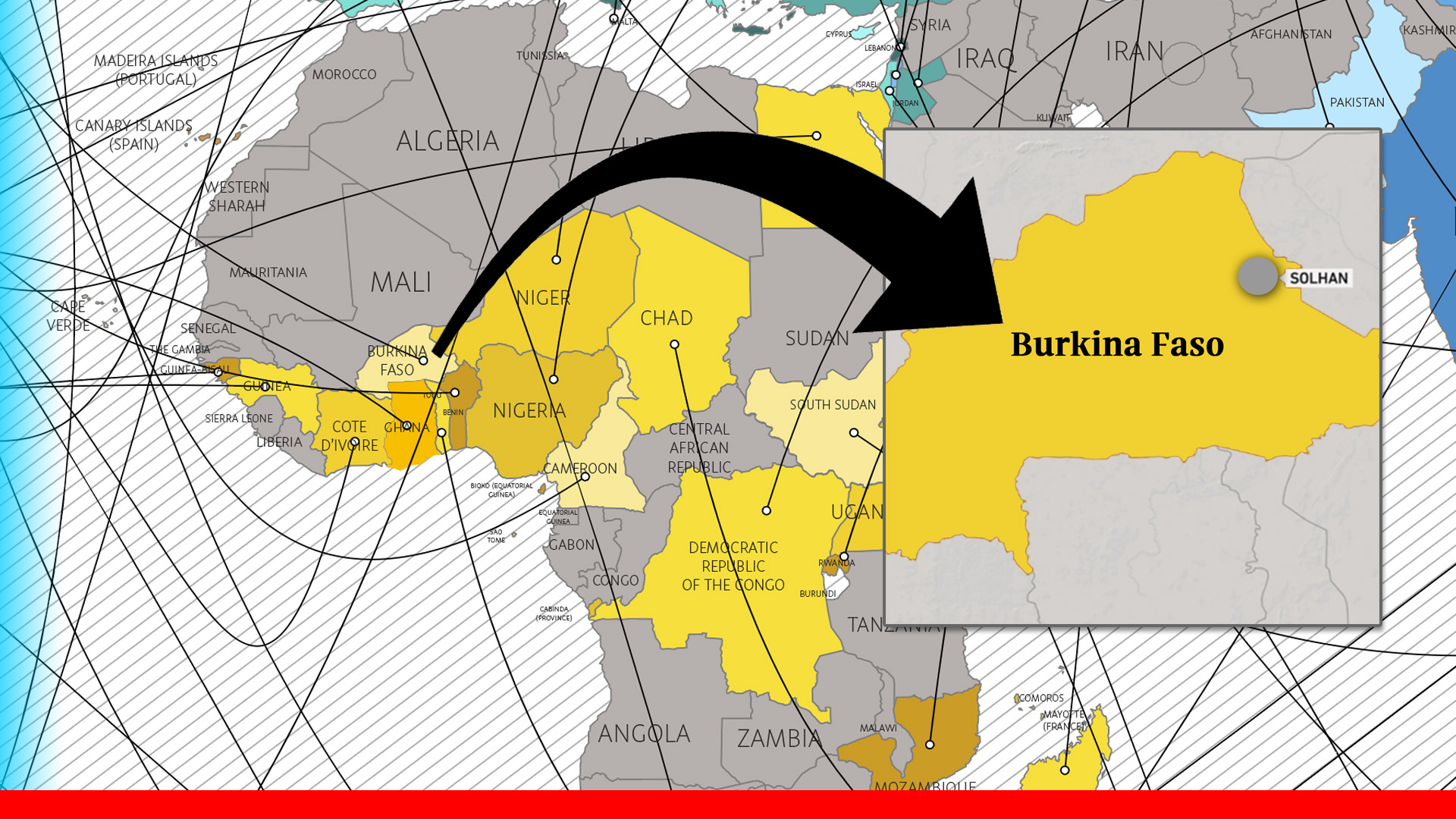Laura Ballerini, Fondazione De La Salle Solidarietà Internazionale ONLUS

On the night of 4 to 5 June 2021, gunmen stormed into the village of Solhan in Yagha province, Burkina Faso, killing 138 people and injuring many more. More than seven thousand families fled to the town of Yagha after what was the deadliest attack to hit the country.
We asked Brother Julien Diarra, Visitor-Provincial of the District of West Africa (Burkina Faso/Niger), to answer some questions so that we could understand the situation in the country.
The terrorist attack that took place on the night of Friday 4 to Saturday 5 June 2021 was the most serious, causing the greatest number of deaths. Can you explain the situation in Burkina Faso? How long have the attacks been going on? Which areas are the most affected?
Burkina Faso is a multi-religious and multi-ethnic country, which was highly regarded for its social cohesion, legendary hospitality and great sense of humour. Many Burkinabe couples are inter-religious and inter-ethnic. This means that the population lived in tolerance and peace.
However, since 2015, our country has been subjected to repeated terrorist attacks, resulting in the loss of many human lives (both civilian and military), the massive displacement of populations, the closure of schools and health centres, as well as administrative structures.
The tragedy in Solhan is the deadliest attack the country has ever suffered, with 138 dead and some 40 injured. This umpteenth attack has brought desolation to families, aggravated the humanitarian crisis in the country, traumatized the surviving populations and spread psychosis at the national level, all of which do not help resilience. The most affected areas are the North, East and North West of the country.
What are the consequences of these attacks on the stability of the country and on the population?
The terrorist attacks have caused an unprecedented humanitarian crisis in Burkina Faso, with an estimated 1,218,754 internally displaced persons (IDPs). They have also resulted in the closure of 2,227 schools, depriving an estimated 303,000 children of schooling, and the closure of 76 health centres and the minimal functioning of 245 other health centres, depriving nearly 822,000 people of health care. Added to this is the trauma of the survivors and the widespread psychosis, as well as the fact that foreign chancelleries have placed almost the entire country in a red zone and strongly advise against visiting our country.
How do Lasallian works respond to help the population?
Our mission as La Salle is holistic and quality education. For the past three years, our NGO called “Association Frères des Écoles Chrétiennes”, (AFEC)*, has been supporting internally displaced persons and shelter homes, providing them with psychological assistance, food and hygiene products, sleeping materials, scholarships for children and training scholarships for youth and women. Our various schools and training centres, mainly those located in areas with a high security challenge, receive internally displaced students whom we take care of entirely. All this humanitarian assistance is possible thanks to the generosity of our partners in the Lasallian International network, to whom we are grateful.
The terrorists, in the name of their obscurantist ideology, are fighting education. Without education for young people, the future of the whole country is at stake. The challenge for us is therefore to continue to offer children and young people a quality education. However, faced with the massive influx of internally displaced students, our reception capacities are saturated. This is why we have developed a project to build new classrooms in order to increase the capacity of our schools located in areas with high security challenges. We submit this project to the kind attention of benefactors.
F. Julien Diarra, Visitor-Provincial of the District of West Africa (Burkina Faso/Niger).
De La Salle Brothers in Burkina Faso
The Brothers of the Christian Schools have been present in Burkina Faso since 1948 and have made a significant contribution to the education of the country’s intellectual elite through their network of primary, secondary and technical and vocational schools.
The Lasallian network in Burkina Faso has 3 primary schools, 8 secondary schools and 3 vocational training centres.
Since 2018, they have marked their entry into higher education through the creation in Ouagadougou of the Classes Préparatoires aux Grandes Ecoles (CPGE – La Salle), which are a higher education, scientific and technological establishment. The CPGE – La Salle participate in the political will of the Burkinabe government to put science and technology at the service of the structural transformation of the national economy.
At the start of the 2021-2022 academic year, the De La Salle Brothers will open the Institut Supérieur Privé La Salle (InSuP-La Salle), an institution of scientific and technological education, which will increase the offer of education for students in the scientific fields.
InSuP – La Salle responds to a need for education in emerging sectors in Burkina Faso in order to promote the development of the country through local skills. InSuP – La Salle’s mission is to train young people for employment and self-employment.
AFEC
The Association Frères des Ecoles Chrétiennes (Association of Brothers of the Christian Schools -AFEC) is a non-profit organisation created in 1982 by the Brothers of the Christian Schools whose charism is the educational service of the poor.
AFEC’s mission is to support the La Salle network in Burkina Faso with school infrastructure, equipment, capacity building, scholarships for quality education and training.



